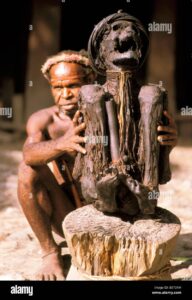
In our modern world, the notion of luxury is undergoing a significant metamorphosis. A new, counter-intuitive notion of opulence is infiltrating the mainstream – minimalism. The minimalist lifestyle, often characterized by streamlined aesthetics, simplicity, and mindful consumption, has begun to redefine what the perception of luxury is all about.
The Allure of Simplicity
Is less really more? The answer, ironically, might be a resounding ‘yes’ in the case of minimalism. It’s an intriguing concept that challenges our conventional understanding of what ‘having it all’ entails. Gone are the days when luxury was defined by excess and extravagance. Today, the minimalist approach to life believes that having less clutter in our physical space can lead to mental clarity and a more meaningful existence.
As scientific studies reveal, clutter can induce stress, making it challenging to focus on tasks. On the contrary, a simple and organized living environment promotes tranquillity, ultimately enhancing productivity and overall well-being.
Minimalism in Fashion and Design
A major influencer of this significant shift towards minimalism is the world of fashion and design. High-end brands have begun to identify the untapped potential of simplified design and understated aesthetics, incorporating it into their products. This trend is also indicative of the public’s increasing conscientiousness about responsible consumption and sustainability.
As renowned fashion designer Coco Chanel once said, “Luxury must be comfortable, otherwise it is not luxury.” Fashion houses that embrace minimalism offer the comfort of simplicity, coupled with the assurance of conscious consumption, redefining luxury as we know it.
The Economic Angle
But it’s not just about aesthetics or conscientious living. The turn towards minimalism has substantial economic implications as well. A minimalist lifestyle warrants mindful spending, which often restricts frivolous purchases, thereby fostering healthier financial habits.
As individuals start to value quality over quantity, they are gradually changing the dynamics within the consumer market. Discerning buyers now prefer investment in products that are durable, multi-functional, and aesthetically pleasing, giving the economy a more sustainable and ethical outlook.
Embracing Minimalism
So, how does one transition to this luxurious simplicity? Integrating minimalism into one’s life is not about instant transformations. It’s a gradual process of decluttering, reshaping habits, and most importantly, redefining personal definitions of success and luxury.
Essentially, the crux of minimalism lies in the realization that happiness and fulfillment are not dependent on material possessions but are nurtured by experiences, relationships, and purposeful living.
Luxury, after all, is about indulging in a lavish lifestyle; it’s just that the definition of ‘lavish’ is changing from a materialistic to a simplistic perspective. With minimalism, luxury is being redefined not by what we possess, but by the quality and value of what we choose to have and experience.
Conclusion
Minimalism challenges the common perception of luxury, presenting a practical and appealing alternative. It embraces simplicity, quality, and mindful living, transforming luxury from a sign of material wealth to a beacon of purposeful existence. This redefinition of luxury encourages us to embrace the essence of minimalism and enjoy the abundant, meaningful life it promises to deliver.





